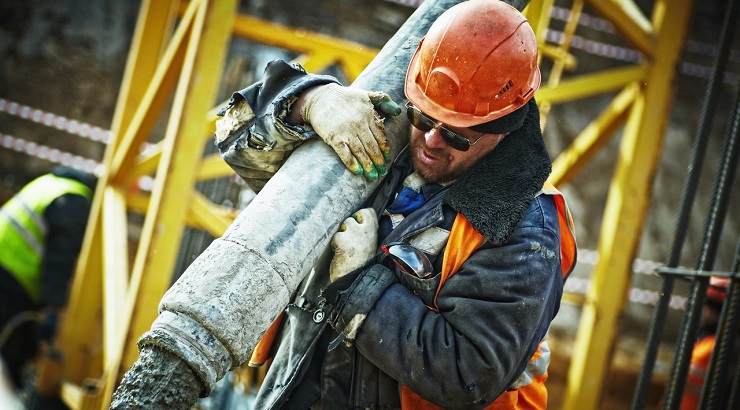What is construction insurance?
There are many types of construction insurances (also known as contractors insurance) intended to protect a property developer and other stakeholders throughout the stages of a construction project.
Contractors insurance, which is basically insurance for a construction project, is a wide classification of coverage that relates to the erection of buildings, roads, bridges or any other types of structures.
The following is a list of the most common types of contractors insurance and how they protect those involved in the stages of construction.
Builder’s Risk Insurance
Builder’s risk insurance (all risk insurance) is coverage for buildings and other structures during construction.
This policy should be prioritized even where policies such as commercial property insurance and homeowner’s insurance have been purchased, since the policies do not cover structures under construction.
Builder’s risk insurance covers residential new construction and remodeling projects, commercial property construction, building materials, foundations, scaffolding, fencing, paving, outdoor fixtures, and lawns fitted by the contractor.
In most cases, all risk insurance covers damages caused by fire, vandalism, and weather, although some construction insurance companies can offer special coverage for unique projects.
Construction bonds
Construction (contract) bonds are intended to guarantee that a project will be completed if accepted, and if failed an entity will be made to pay for the damage.
There are several types of construction bonds, including:
- Bid bonds – which guarantee that bid proposals are serious and that the bidder is capable of undertaking the project.
- Payment bonds – which assure that the builder can provide payments to suppliers, subcontractors, and site workers.
- Supply bonds – which guarantee that suppliers will deliver building materials and other supplies as per the contract.
- Performance bonds – which compel the contractor to follow the quality guidelines set out in the project’s contract.
- Maintenance (warranty) bonds – which protect the project owner from poor workmanship for a period of time after the work is done.
Contractor license bonds
This is an agreement – similar to construction insurance policies – which assures that a contractor will obey the rules that pertain to their contractor license.
It is designed to protect members of the public and the people who will work or do business with the contractor.
Contractor license bonds are offered by insurance companies and the cost usually varies depending on the contractor’s historical track-record of income and credit score. The better the track-record the cheaper the bond.
Workman’s Compensation
This type of construction insurance is designed to protect businesses and contractors from any liability in the event their worker is injured while on duty.
It covers medical expenses as a result of a covered incident, ongoing recovery expenses related to an injury, missed wages, legal fees if the policy holder is taken to court, as well as funeral costs and death benefits.
General liability insurance
Also known as commercial general liability insurance, this type of insurance for construction offers a liability protection to businesses in the event of property damage or bodily harm in the course of business.
General liability insurance policies for construction companies usually cover damages relating to defective workmanship, work-related injuries, and defamation.
Like in other types of construction insurances, general liability insurance outlines certain exclusions to protect insurers from having to cover certain risks.
Construction equipment insurance
Also known as tool and equipment insurance, this type of insurance is designed to cover the tools and equipment used by construction professionals, including:
- Computers and data – desktops, laptops, tablets, and project data.
- Owner’s equipment – forklifts, cranes, loaders, excavators, etc.
- Contractor’s tools and equipment – generators, drills, hammers, saws, etc.
- Leased equipment – leased equipment and tools.
This policy typically covers items at either replacement cost or at the fair market value of the stolen or damaged items.
Coverage of this nature includes equipment stolen from a construction site as well as those damaged in a fire or natural disaster at a jobsite.
Professional liability insurance
Also known as errors and omissions (E&O) insurance, this type of coverage offers protection for a business against claims resulting from errors and mistakes that occur during normal business operations.
A good example of E&O coverage is the case of an engineer who miscalculates the structural requirements of a house – causing the owner to make expensive repairs.
The homeowner may sue the engineer for damages caused by his mistakes. In this case, the E&O policy in the engineer’s insurance policy might cover the claim.
However, unlike other policies that cover property damage or bodily injuries suffered in the line of duty, E&O policies only cover financial losses.
Source: https://www.constructionkenya.com/10113/construction-insurance/





